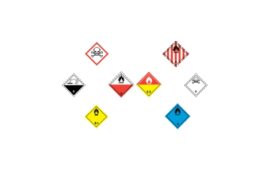As we all are aware, plastic pollution is directly related to global warming and impending carbon emissions. Hence, the industrial sector needs to educate itself about the catastrophe, its effects on both the environment and human health, and international efforts to combat this issue.
An international single-use plastics crisis is looming. At every point in the process, from raw material extraction to final disposal, single-use plastics have an adverse impact, leaving companies a bit short of their ESG goals.
The effects are being felt in many different spheres, such as biodiversity, climate change, and human health. In this blog, we’ll discuss the correlation between single-use plastics and global warming, as well as how Emmbi’s Reclaim 30 FIBCs contribute to a better and greener tomorrow.
The Rise Of Carbon Footprint Due To Single-use Plastic Waste
In recent times, dead whales with stuffed bellies of single-use plastic bags had drawn global attention.[2] The issue of single-use plastics is so severe that many cities are not only overwhelmed with solid plastic waste but also witness tiny plastic particles floating around in the air.
The primary impact of single-use plastic production on environmental issues like global warming is often disregarded. The carbon footprint of single-use plastics is substantial, but many viable alternatives also have large carbon footprints. That’s why finding a sustainable choice is such a challenge.
Therefore, companies who wish to use less single-use plastic must exercise caution while selecting alternatives. Experts in the field of garbage management all agree on one thing: the world has much too much single-use plastic garbage. And more of it is being produced than ever before.
Making A Case For FIBCs
Flexible Intermediate Bulk Containers (FIBCs) make for a sustainable alternative to single-use plastics. The single homo polymer used in FIBCs such as the ones manufactured by Emmbi is highly-durable and long-lasting, mitigating industrial plastic packaging waste considerably. The equation is simple – lesser wastage leads to lesser non-biodegradable plastic accumulation, benefiting the environment.
The world we inherit today is undergoing a considerable change in how companies go around their product processing. This gets marked by a growing need for enterprises to pursue environmentally-friendly routes, ensuring they contribute toward eliminating environmental doomsday. Therefore, businesses engaged in large-scale packaging, storage and transportation must look for FIBCs that build upon this notion.
In essence, FIBCs are sturdy and have a long life. They stand to serve the process for years, reducing wastage and enhancing environmental well-being. They are a one-stop shop for all packaging needs. Plus, they can get stored by flattening and folding. There is no need to wrap them in plastic or any other material.
There is, however, one more prominent advantage of using FIBCs for bulk packaging and transportation. Due to their significantly lower space occupancy and flexibility that allows vertical stacking, more FIBCs can be accommodated in the same transportation vehicle, thereby reducing the number of commutes. This not only helps reduce transportation costs but also helps reduce the vehicular carbon footprint.
Against Other Avenues
Ordinary bags and cartons used for bulk packaging are often harmful. These emit toxic fumes at each stage of the production and disposal processes. Furthermore, cardboard or corrugated boxes often get dumped into disposal bins and are left to decompose by themselves. In the time that gets elapsed, these invariably subjugate to contamination, becoming a bedrock and breeding ground for germs and pathogens.
In this regard, FIBCs rank considerably high on the sustainability aspect. They can get recycled multiple times and reused. Even if they cease to befit recycling, they can get easily repurposed.
How Emmbi’s Reclaim30 Make A Difference
Terms such as “green living” and “eco-friendly” have become catchphrases on infomercials, talk shows, and product packaging. By definition, eco-friendly means earth-friendly, meaning it is not harmful to the environment. The phenomenon most commonly refers to products that conserve resources. In simple words, eco-friendly products help curb air, water and land pollution.
When engaging in eco-friendly practices, enterprises can be more conscious of how they select and design products and packaging. In the field of industrial packaging, this role is filled by recycled polypropylene (PP).
In the current market, recycled PP fetches lower properties than its virgin counterpart. As a result, most companies are reluctant to use recycled PP in their products. Emmbi has developed Reclaim30, a compatibilizer-based technology that ensures 30% recycled PP in the FIBC on average.
Emmbi’s Reclaim30 FIBCs are made by using the world’s first compatibilizer-based recycled PP with performance parameters very similar to virgin PP. Based on Emmbi’s proprietary technology, Reclaim30 is compatible with all grades of virgin PP and can be used in any application where recycled PP is used.
With Reclaim30, Emmbi is leading the way towards a circular economy for polypropylene.
To know more about Emmbi’s Reclaim30 FIBCs, please visit https://emmbi.com/reclaim30/ or write to us at sales.export@emmbi.com.
References
[2] Vox – https://www.vox.com/2019/5/24/18635543/plastic-pollution-bags-whale-stomach-beached



